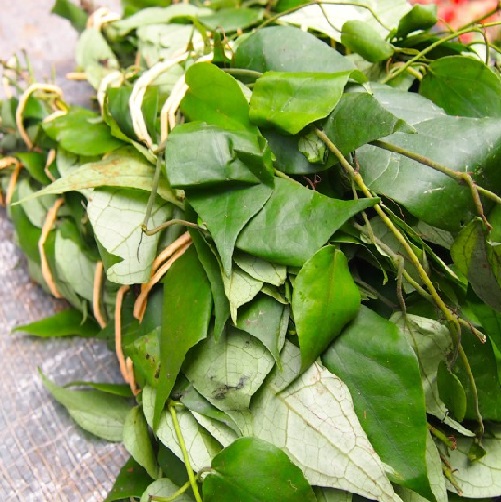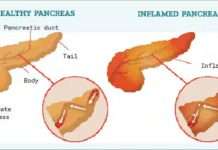
As we age, our bodies become less efficient at managing our blood pressure. Our bodies produce less nitric oxide and other substances that help keep our arteries healthy and open. This can lead to high blood pressure, which increases our risk of stroke, kidney disease, heart attack or other problems with our organs over time.
Utazi, a natural vegetable, has been found by several studies to be helpful in lowering high BP levels naturally without any side effects. It's been used for centuries to combat hypertension and improve general cardiovascular health. The leaves of the plant are boiled in water and the resulting liquid is taken orally.
Utazi is a heart-shaped leaf plant with a distinct, intense, bitter and barely sweet flavour, when eaten raw or fresh. It is known for enhancing soups taste and for countless fitness advantages. Scientifically known as Gongronema latifolium, it is regarded as utazi in Igbo and Arokeke amongst the Yorubas’. It is a member of the Asclepiadaceae plant family, a tropical rainforest plant that is largely used as a spice and vegetable in common medicine.
In a study published in the Journal of Ethnopharmacology, scientists found that utazi leaves contain some compounds that could be responsible for its hypotensive (blood pressure lowering) effect. These include: beta-sitosterol, tannins, flavonoids and alkaloids.
Beta-sitosterol is a plant sterol that has been shown to have a number of health benefits, including lowering blood pressure. Tannins are compounds that have astringent properties and can help to tighten and tone blood vessels. Flavonoids are a type of phytonutrient (plant nutrient) that have antioxidant properties. Alkaloids are a type of compound that has a wide range of effects on the body, including lowering blood pressure.
Findings on how Utazi Lowers Blood Pressure
Nigerian scientists, in a study published in the Journal of Ethnopharmacology have also validated that an extract of utazi leaves was able to significantly lower blood pressure in rats that had been induced with hypertension. The rats were given the extract for a period of four weeks, and at the end of the study, there was a significant reduction in both systolic and diastolic blood pressure.

These findings suggest that utazi could be a promising natural treatment for hypertension, and further studies are warranted to confirm these results in humans. If utazi does prove to be effective in lowering blood pressure, it could offer a safe and affordable option for the millions of people around the world who suffer from this condition.
Another research published in the journal Hypertension has also found that utazi leaves can help to lower blood pressure.
The study, which was conducted by scientists at the University of Nigeria, found that utazi leaves can help to reduce both systolic and diastolic blood pressure.
In conducting the study, participants were given either a placebo or a utazi leaf extract. The participants who took the utazi leaf extract had significantly lower blood pressure than those who took the placebo.
Lead author of the study, Dr Ifeanyi Okoro, said that the findings could have important implications for the treatment of high blood pressure.
Okoro said that the findings could lead to the development of new, natural treatments for high blood pressure. Utazi leaves have long been used in traditional medicine for the treatment of various ailments, but this is the first time that their efficacy has been proven in a scientific study, he said.
Other Health Benefits of Utazi
- Enhances Digestion
Researchers from the findings of the study published in Journal of Ethnopharmacology, noted that extract of the leaf, can help to decrease stomach acidity and increase the production of digestive enzymes. These effects help to improve the digestion of food and the absorption of nutrients. In addition, utazi has also shown to have an antimicrobial effect, which can help to prevent the growth of harmful bacteria in the gut.
The study found that the utazi leaves helped to increase the release of stomach acid by up to 80%. This is believed to be due to the presence of compounds like tannins and flavonoids in the leaves. These compounds can help to stimulate the release of stomach acid.
- Treats Cough
Utazi leaves are very effective in the treatment of cough. The leaf extract can help to relieve congestion and help you get rid of mucus that is blocking your throat. It can also help to clear out your sinuses and improve your breathing.
The mechanism by which utazi treats cough has been found to be due to its anti-inflammatory and expectorant properties. It is thought that the anti-inflammatory effect reduces the irritation of the airways, while the expectorant action helps to clear mucus from the lungs.
There is a significant body of scientific research that demonstrates the efficacy of utazi in the treatment of cough. In a research conducted by Nigerian researchers and published in the National Library of Medicine, a group of patients with chronic cough were given a standardised extract of utazi for eight weeks. The results showed that utazi was effective in treating the cough, and that the patients had a significant reduction in the number of cough episodes and the intensity of their cough.
- Post-Pregnancy Care
Nursing moms use utazi to counteract the effects of pregnancy, including to aid with weight loss, to clean the uterus, and to diminish the size of the stomach after birth. After the pregnancy, the body is restored with it.
When to see a doctor for blood pressure control
If your blood pressure is consistently high, it is important to see a doctor to get it under control. High blood pressure can lead to serious health problems, so it is important to take it seriously. If you are not sure whether or not your blood pressure is high, you can check it at home with a home blood pressure monitor. If it is consistently above 120/80, you should see a doctor.
There are a few things you can do to help lower your blood pressure. Eating a healthy diet and exercising regularly can help. You should also avoid smoking and excessive alcohol consumption. If you are overweight, losing weight can also help lower your blood pressure.













